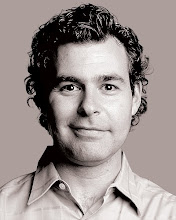So after the heated debate
that my Las Vegas Weekly column spurred last month over the recent book "Eating Las Vegas" and the disturbingly clubby relationships between the three critic authors and prominent Vegas restaurateurs, the topic just erupted in a massive way in Los Angeles, too.
The L.A. Times' food critic, S. Irene Virbila and some companions went to a new restaurant called Red Medicine in Beverly Hills the other night. For 16 years, she has worked as under-the-radar as possible. But someone on the staff at Red Medicine believed he spotted Virbila, who had made reservations under an assumed name. The managers spent a little time confirming it and made the party wait 40 minutes before bursting out, shooting her photo and informing her they would not be serving her at the restaurant.
The restaurant then put out a photo of Virbila on their website, too, and Gawker and Eater.Com also posted it. Her anonymity, such as it was, is gone. She spent 16 years avoiding photos of herself being published.
There is much to say, obviously. Managing partner Noah Ellis thinks he's a hero,
telling the L.A. Times that Irene's reviews in the past have been "unnecessarily cruel and irrational." She is said to have immense power over the fate of new restaurants, and she tends to eat at least three times at a place before making a decision.
This situation is a Rorschach test for those who line up on various sides of the debate. I, of course, believe that food critics ought to try their best to visit restaurants unannounced and incognito in order to have as accurate a representation of the food and experience as possible. Those have been the phrases I've been using for weeks on this matter, so imagine how gratifying it was to read Virbila in the L.A. Times story on her outing saying that it is preferable to not make a spectacle of yourself because if you do, "it's not an accurate representation of the restaurant."
If I'm deluded into believing that it's not that hard to be a quiet, effective food critic, then the other side -- including L.A. Weekly critic Jonathan Gold, who thinks there's "absolutely no difference in being recognized in restaurants" -- is at least as equally, but more insidiously, delusional. It's shocking and laughable
when Vegas Seven critic Max Jacobson said on KNPR that he doesn't evaluate service because service doesn't matter, showing how insufferably removed from the reality of ordinary restaurant patrons he is. (Jacobson also announced on that show that anyone who needs to try a restaurant more than once to evaluate it is a poseur, someone lacking in "instincts." Good grief.)
Those who believe that anonymity is a total myth, however, point to the fact that Virbila was noticed at Red Medicine and that chefs say they know who the important critics are and coddle them whether they know it or not. The entire charade is worthless and silly, they squawk.
Except there are 72-oz-porterhouse-wide holes in that logic in this situation:
* After 16 years in Los Angeles, it took Red Medicine a great deal of deliberation before they could determine if, in fact, this was the person. Thus, they don't ALL have her photo up in their kitchens or her face memorized. These were veteran restaurant people and they weren't entirely sure.
* The purpose of this outing was to forewarn other restaurant owners and make Virbila's work harder. That implies that she had managed to be successful at her undercover work at least some -- a lot? -- of the time.
* The logical conclusion of this idea that critics ought to give up being anonymous and allow restaurants to shower them with extra goodies and attention is that criticism by the very people who have real culinary expertise -- such as Mancini, Curtas and Jacobson -- becomes disregarded by the public. The reader knows these guys are coddled and that they won't be, so the reader is more likely to discount rave reviews as the result of some nefarious, unfair meddling. That leaves, essentially, the Yelp! universe. I don't mind that -- I look to Yelp! often -- but the odds are the Yelpers don't have the history or expertise that long-term professional critics have. The outcome is the triumph, essentially, of less informed opinions.
Of course, there's a space between the true-anonymity and the critic-as-rock-star poles. In there, food critics simply try to keep a low profile, to not draw attention to themselves, do their best and at least maintain the implicit contract with the reader that they're working on their behalf. They don't make chums with chefs and owners any more than I'm chums with top casino executives I cover or Jon Ralston is chums with politicians or Mike Weatherford is chums with actors and directors. You can be friendly and civil without it becoming a friendship, you can maintain a detachment that allows you to assess situations and information through a prism that enriches the public that you serve.
There is a reason why this topic -- and now the Red Medicine event -- is so fascinating. There is also no other discipline where an artist or purveyor of creative goods is permitted to select their critic. No author or film studio can stop a critic from consuming the material and rendering a response. Only in food criticism is it even possible to alter the product for a person's specific tastes or actually exclude them altogether from being able to evaluate it.
That's why the Virbila situation is so weird. No matter where you stand, it ought to be instinctively offensive that Ellis would actively work to out this woman and refuse to serve her. That reflects, to me, two things:
* The restaurant must truly suck.
* The owner is incredibly bitter.
 You might recall I was up in Sun Valley this past June for an interview with Parry Thomas, the legendary Vegas banker, Steve Wynn mentor and father of Wynn design guru Roger Thomas. At long last, the piece is out in Sun Valley Magazine.
You might recall I was up in Sun Valley this past June for an interview with Parry Thomas, the legendary Vegas banker, Steve Wynn mentor and father of Wynn design guru Roger Thomas. At long last, the piece is out in Sun Valley Magazine.







